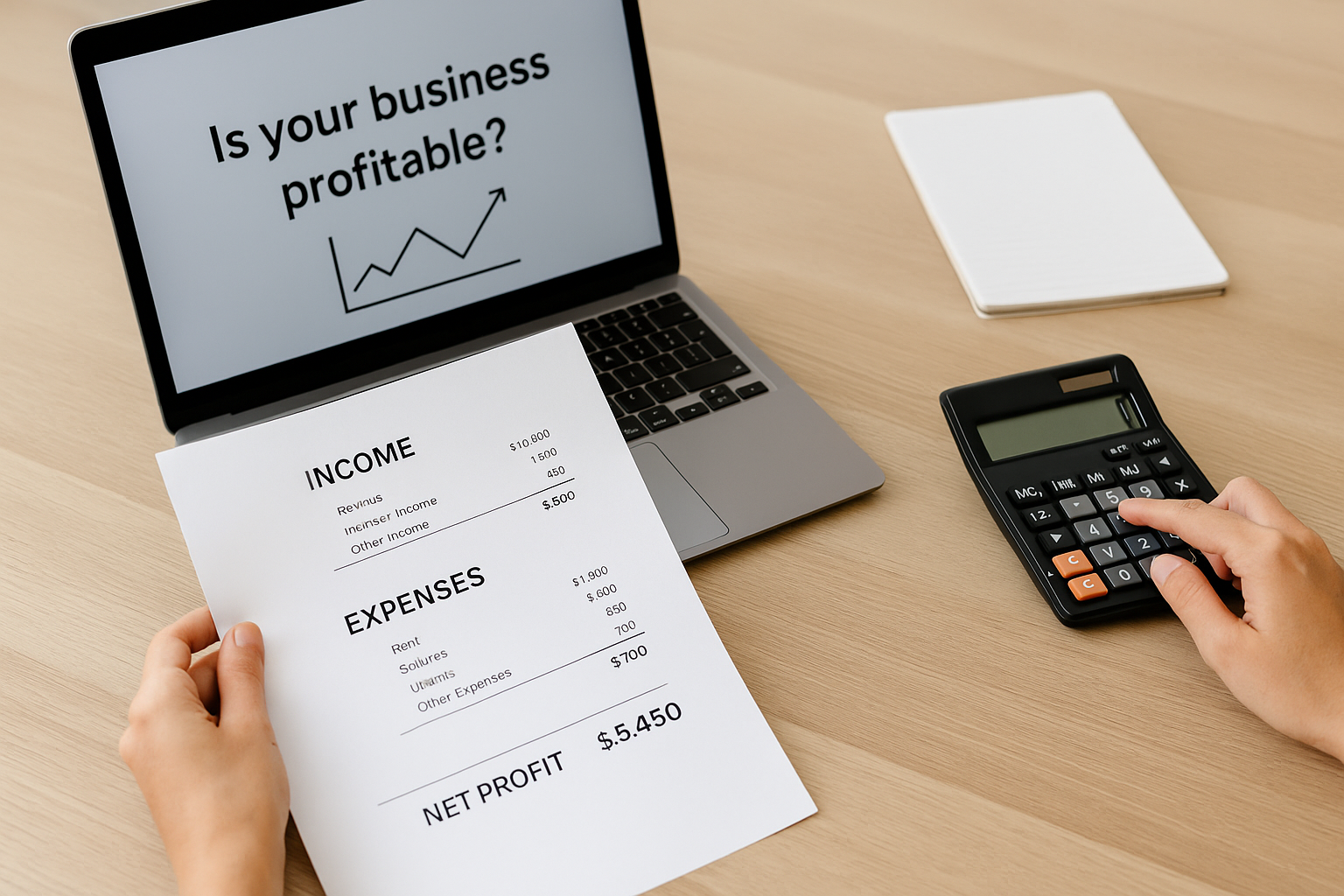
When you are self-employed, making a turnover is not enough.
The real question is: How much do you really have left after all expenses have been deducted?
And even more: Is your business profitable? Not only on the surface, but In detail, month after month.
Here is a simple and concrete method for Assess Real Profitability of your activity, whether you are a freelancer, consultant, or manager of a small business.
The Turnover (CA) Corresponds to all the amounts invoiced.
But It's Not Not What You Actually Earn.
First you have to Infer :
👉 High turnover can hide low profitability if expenses are poorly controlled.
Simplified formula for freelancers and small businesses:
Net result = Received income - (fixed expenses + variable expenses + contributions + remuneration)
That's what you really have left after you've paid for everything.
💡 This result can be positive (you are profitable), or negative (you are losing money).
This rate allows you to put your results into perspective:
Rate of return = Net Income/sales × 100
For example:
A Good Rate Depends on Your Sector, But Under 20%, it is often time to optimize.
Financial Profitability Is Not Enough If Your Time Is Poorly Valued.
💡 Calculate your Net Hourly Income :
Net Income/number of hours worked = Actual hourly rate
Example:
Ask yourself the question: Is this rate right for you?
Instead of recalculating everything by hand, you can automate your follow-up by:
Measuring the real profitability of your business allows you to:
-> make informed decisions
-> find out if your business is viable in the long term
-> Pay you the fair value of your time and skills
Profitability is not only measured at the top of the balance sheet.
It is an indicator vital, strategic and accessible to all, from the first months of activity.

The threshold is when the income covers all fixed + variable expenses, and generates a sufficient margin to pay for the time invested.

Rent, subscriptions, insurance, equipment, equipment, taxes, unbilled working time, marketing expenses and depreciation.

By estimating the total cost of a mission (time + expenses) then applying a margin to obtain a rate that covers everything and leaves a margin.

By centralizing accounts, expenses, income and by providing clear indicators (gross/net profit, margin per mission) in the cockpit.